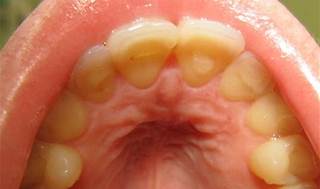A nurse is assessing a patient with an eating disorder. The patient states, "I feel so fat and disgusting." Which response by the nurse is appropriate?
"You should try to eat healthier and exercise more.”
"You're not fat, you're beautiful just the way you are.”
"I understand how you feel. Many people with eating disorders struggle with body image.”
"You need to stop worrying about your weight and focus on other things.”
The Correct Answer is C
Choice A rationale:
Monitoring vital signs and weight. While monitoring vital signs and weight is an essential aspect of patient care, it primarily focuses on the physical health of the patient. In the case of an eating disorder, the underlying psychological and emotional issues also need attention, which is not addressed solely by monitoring vital signs and weight. The patient's emotional well-being and coping strategies are equally important in promoting overall recovery.
Choice B rationale:
Providing positive reinforcement for eating. Positive reinforcement can be helpful in encouraging desired behaviors; however, focusing solely on positive reinforcement for eating might oversimplify the complexities of treating an eating disorder. Eating disorders are often rooted in psychological factors, and addressing the underlying causes and emotions is crucial. Providing positive reinforcement might not address the emotional challenges the patient is facing, and a more comprehensive approach is needed.
Choice C rationale:
Teaching coping skills and stress management techniques. This is the correct choice. Eating disorders are often connected to emotional distress, poor body image, and stress. Teaching coping skills and stress management techniques empowers the patient to develop healthier ways of dealing with emotions and triggers that may contribute to their eating disorder. By addressing the emotional aspect, the patient is better equipped to manage their disorder and work towards recovery.
Choice D rationale:
Involving the family in the treatment process. Involving the family in the treatment process can be beneficial, as family support is important for recovery. However, it's not the most appropriate intervention on its own. Eating disorders are complex and individualized, and addressing the patient's personal coping mechanisms and emotional well-being should be the primary focus. Family involvement can be part of a comprehensive treatment plan, but it should not replace teaching the patient coping skills and stress management techniques.
Nursing Test Bank
Naxlex Comprehensive Predictor Exams
Related Questions
Correct Answer is A
Explanation
Choice A rationale:
This is the correct action to take. Evaluating the effectiveness of nursing interventions involves reassessing the patient's condition and comparing it to the expected outcomes. This step helps determine whether the interventions are producing the desired results and if any adjustments are needed.
Choice B rationale:
While documenting the nursing assessment, diagnosis, and plan is essential for maintaining accurate patient records, it is not the most direct action for evaluating the effectiveness of interventions. Documentation supports continuity of care but doesn't provide immediate insight into intervention outcomes.
Choice C rationale:
Involving the family in the treatment process (choice C) can be important for a patient's overall well-being, but it doesn't directly address the evaluation of nursing interventions. Family involvement is more related to the planning and implementation stages of care.
Choice D rationale:
Consulting with other members of the multidisciplinary team is a collaborative approach to patient care, but it's not the primary action for evaluating the effectiveness of nursing interventions. Team collaboration contributes to comprehensive care but doesn't directly assess intervention outcomes.
Correct Answer is ["A","B","C","D"]
Explanation

The correct answer is a. Recurrent episodes of binge eating, b. Inappropriate compensatory behaviors to prevent weight gain, c. Normal or slightly above normal body weight, d. Sense of lack of control over eating.
Choice A rationale:
Recurrent episodes of binge eating are a key diagnostic criterion for bulimia nervosa. This involves consuming a large amount of food in a short period while feeling a lack of control over eating.
Choice B rationale:
Inappropriate compensatory behaviors, such as self-induced vomiting, misuse of laxatives, fasting, or excessive exercise, are used to prevent weight gain and are essential for diagnosing bulimia nervosa.
Choice C rationale:
Individuals with bulimia nervosa often maintain a normal or slightly above normal body weight, which can make the disorder less noticeable compared to anorexia nervosa.
Choice D rationale:
A sense of lack of control over eating during binge episodes is a critical feature of bulimia nervosa.
Choice E rationale:
Acknowledgment of the problem is not a diagnostic criterion for bulimia nervosa. Many individuals with bulimia may not recognize or admit they have a problem.
Whether you are a student looking to ace your exams or a practicing nurse seeking to enhance your expertise , our nursing education contents will empower you with the confidence and competence to make a difference in the lives of patients and become a respected leader in the healthcare field.
Visit Naxlex, invest in your future and unlock endless possibilities with our unparalleled nursing education contents today
Report Wrong Answer on the Current Question
Do you disagree with the answer? If yes, what is your expected answer? Explain.
Kindly be descriptive with the issue you are facing.
